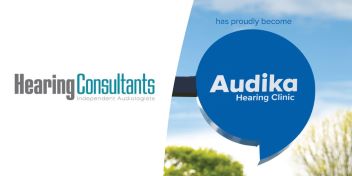At Audika we encourage you to bring a family member or friend along to your hearing test appointment. Why? We know from years of experience and from the latest research that a hearing loss not only impacts you but also those you have contact with every day – your family, friends, work colleagues and other members of the community. They can see first-hand how your hearing loss may lead to misunderstandings, the request for repetition and even avoidance of certain situations. For our clinicians at Audika, this insight is invaluable. It helps them paint a more accurate picture of your lifestyle and the difficulties you might be experiencing.
Did you know?
Did you know that adults with a hearing loss who had more positive support from significant others such as family or friends, were more likely to be successful hearing aid users?1 That is why our philosophy at Audika is to offer a client centred approach. This means that we encourage that the management of your hearing loss also involves the presence of someone who is close to you. Not only can they support your decision to pursue hearing aids but companions provide valuable insight when defining joint goals and expectations. And don’t forget that they are a second pair of ears to help remember information.
And that is why, at Audika, we actively encourage companions to attend hearing test appointments. So don’t be surprised when we ask you to bring one along to your hearing test appointment.
Regular hearing health checks can help you keep on top of your hearing health. If you need assistance with your hearing health, please contact us on 0800 569 152 or Live Chat with an Audika Customer Service Representative, Monday to Friday 9am to 5pm.
1 Louise Hickson, Carly Meyer, Karen Lovelock, Michelle Lampert & Asad Khan (2014) Factors associated with success with hearing aids in older adults, International Journal of Audiology, 53:sup1, S18-S27, DOI: https://doi.org/10.3109/14992027.2013.860488





